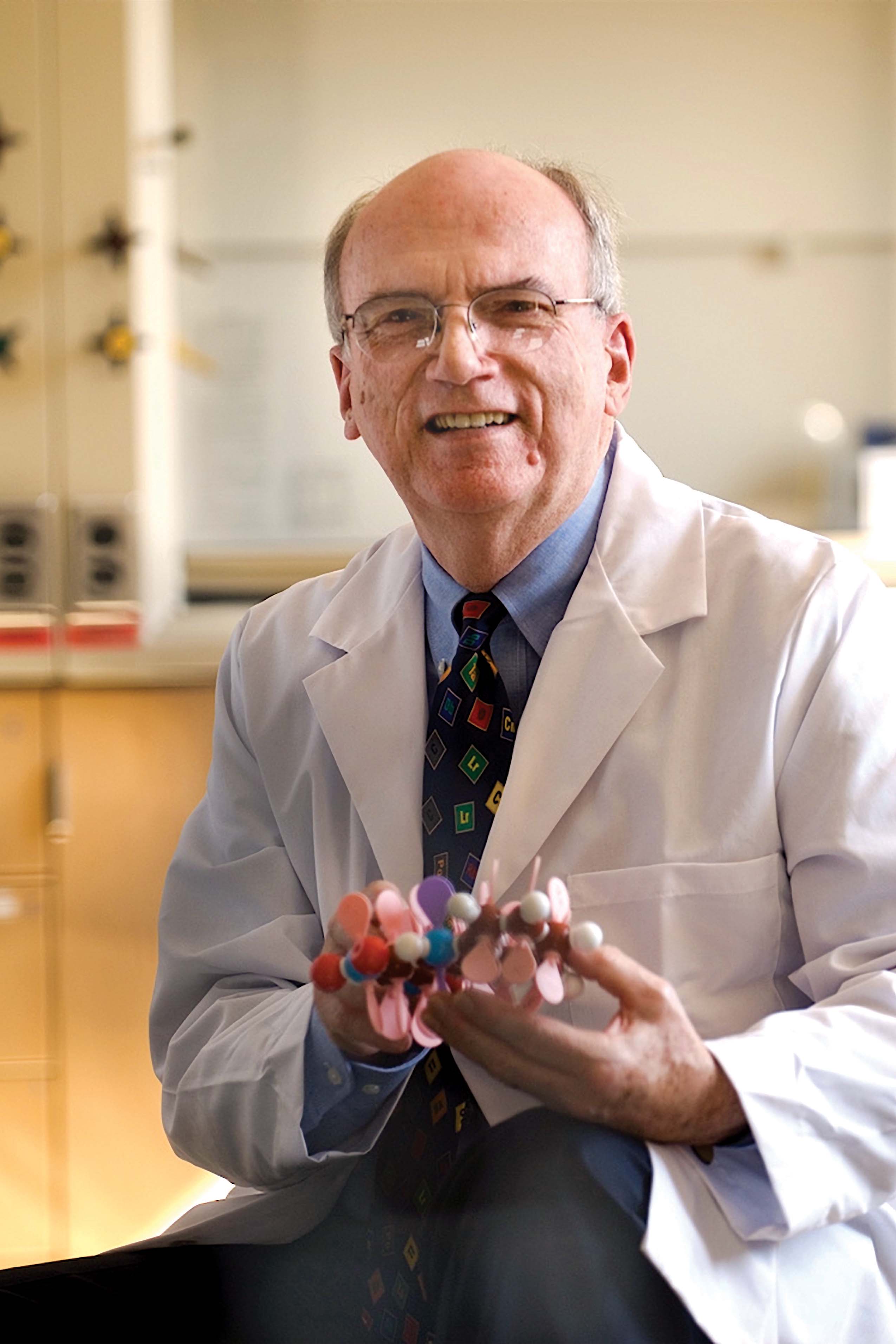Frank J. Creegan, Longtime Professor and Chemistry Chair, Passes
By Mark Jolly-Van Bodegraven
Frank J. Creegan, who spent four decades as a professor at Washington and stayed involved in events at the College even after his retirement in 2007, passed away peacefully in May. He was an innovative teacher, a devoted advocate for his field and his colleagues, and an active member of the Chestertown community.
Creegan joined the faculty in 1967 and moved up the academic ranks quickly, was promoted to full professor in 1974, and then appointed W. Alton Jones Professor of Chemistry in 1982. In 2011, the College established the Frank J. Creegan Chair in Green Chemistry in recognition of Creegan’s “40-year service to the College and his longstanding development and oversight of the chemistry program.”
Creegan served as chair of the Department of Chemistry for much of his tenure at Washington and was an instrumental member of the premedical committee until his retirement. He was awarded the President’s Distinguished Service Award the year he retired.
“For 40 years, Frank tirelessly poured his heart and soul into the chemistry department and the College as a whole. Frank was committed to student-centered learning decades before people started truly focusing on this,” current chemistry chair Leslie Sherman said. “Through his guided-inquiry teaching style, he encouraged students to create their own knowledge and understanding of organic chemistry as they worked in groups with his guidance. Many years later, alumni would tell him that they remembered what they learned due to the style of teaching.”
In 1992, Creegan joined with chemistry colleagues from 13 regional undergraduate colleges to found the Middle Atlantic Discovery Chemistry Project (MADCP), which sought to change the undergraduate chemistry laboratory experience from a set of verification activities to true experiments in which results were unknown to the student. Initial funding of MADCP came from the U.S. Department of Education through its Fund for the Improvement of Post-Secondary Education.
With a $1.5 million grant from the National Science Foundation, MADCP expanded into Process Oriented Guided Inquiry Learning (POGIL), a student-centered, learning cycle-based, team-learning approach to both classroom and laboratory instruction that is based on research on how students learn best. Creegan was a co-project investigator for the initial NSF grant. Today, POGIL is implemented in a wide range of subjects in more than 1,000 high school and college courses worldwide.
His contributions to the way chemistry is taught and his personal teaching at Washington earned Creegan several teaching awards, including the Christian R. and Mary F. Lindback Award for Distinguished Teaching in 1970 and the American Chemical Society, Northeastern Section, James Flack Norris Award for Outstanding Teaching of Chemistry in 2015. In retirement, Frank continued to be involved in POGIL and in the Division of Chemical Education of the American Chemical Society as chair of the Regional Meetings Committee.
But for all the impact Creegan had on chemistry education as a field, his work was perhaps most deeply felt at Washington College, his academic home. Retired psychology professor George Spilich worked with Creegan during their time at Washington and emphasized the impact of POGIL’s inquiry-based, active learning. Aside from the teaching innovation, Spilich remembered Creegan for his dedication to his colleagues and his students.
“Frank was an outspoken advocate for the chemistry department, and he maintained close and personal relations with former students,” Spilich said. “Many physicians and chemists who went through his organic class still to this day hear in their head the word carbon in Frank’s Boston accent.”
Creegan is survived by his wife Barbara Markert Creegan; his children Frank Joseph Creegan and Thomas Alexander Creegan II and his spouse Felicia Shakman; nieces, nephews, grand nephews, and cousins and their children.

